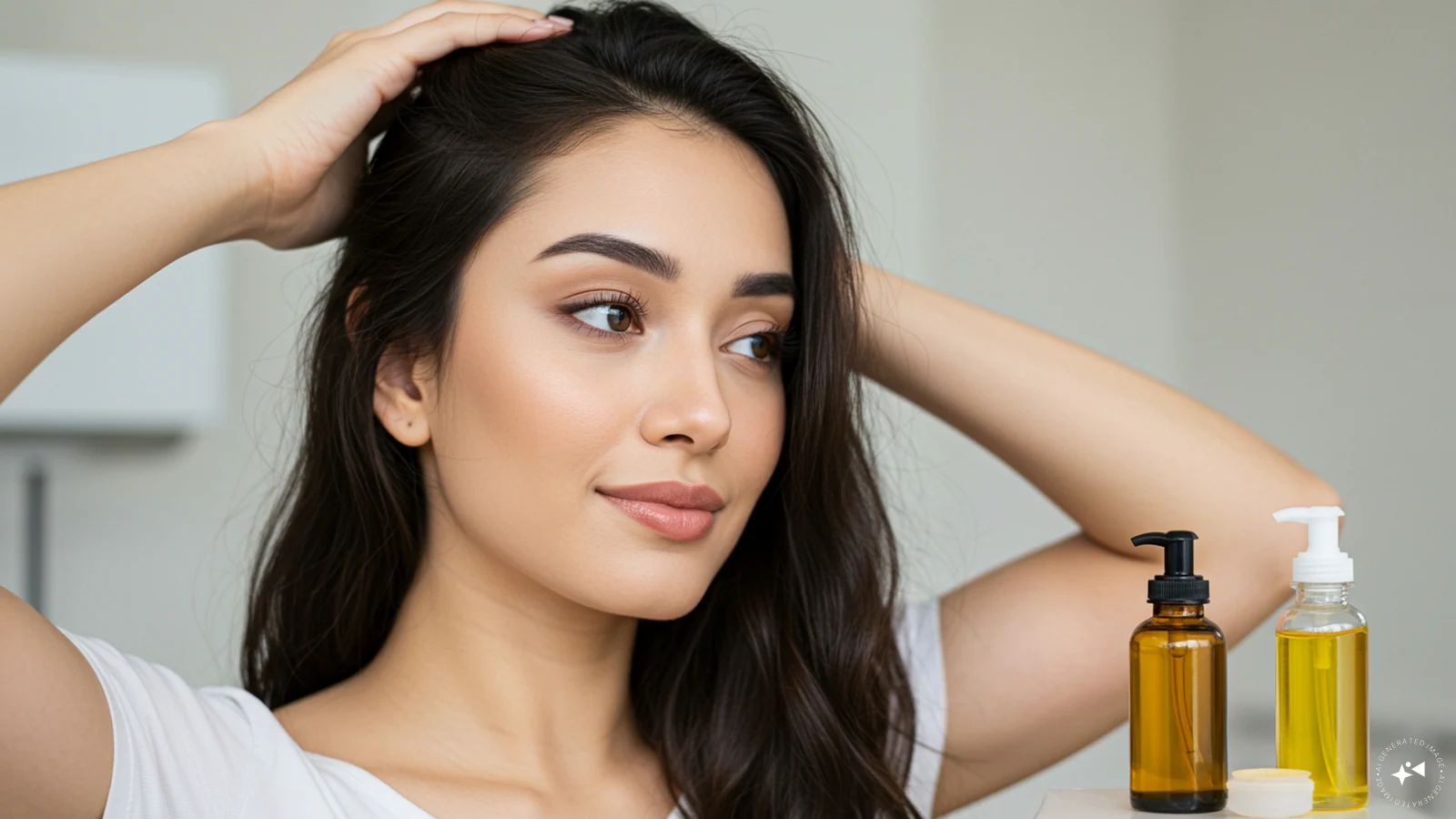By News18
Everyone’s seen those ads—glossy hair, miracle formulas, and bold promises to stop hair fall in weeks. But here’s the truth: most cases of hair loss have little to do with shampoo. Hair fall is your body’s way of saying something deeper is off. From stress to pollution, hormones to diet, there are silent forces at work. More often than not, people look outward for answers when the real causes are internal, layered, and often overlooked in regular beauty routines. Siddhant Agarwal, Managing Director and co-founder, Avimee Herbal, shares insights:
Stress Isn’t Just Mental—It Shows Up on Your Scalp
Stress has become a default state for many of us, but it’s also a major trigger for hair fall. Chronic stress causes the body to release excess cortisol, which disrupts the hair growth cycle and pushes follicles into a resting phase. The result is telogen effluvium, where hair sheds in larger amounts than usual. It can take weeks or even months to reverse, depending on how long the stressor lingers.
In real life, I’ve seen high-performing professionals experience sudden thinning after stressful events like job changes or personal loss. No shampoo can fix that. What helps is managing stress from the inside out—through rest, movement, therapy, or even just learning to slow down.
Pollution Is the New Dandruff
If you live in a city, your scalp is constantly under attack from invisible pollutants. Fine particles, car exhaust, industrial chemicals—these settle on the scalp and trigger oxidative stress, damaging both the skin barrier and the hair shaft itself.
A 2019 study published in the Journal of Investigative Dermatology showed that common air pollutants can lower levels of proteins that support hair growth. This isn’t about hair being “dirty.” It’s about real biological changes caused by your environment. Many people don’t realise this damage accumulates over time, even with regular washing.
Your Hormones Might Be Undermining Your Hair
Hormonal shifts are one of the most overlooked reasons behind hair fall. Conditions like PCOS, thyroid imbalances, or menopause can shrink hair follicles or disrupt their cycle. The result? Thinner, weaker hair and a receding hairline that creeps up slowly.
One case that stands out involved a woman in her thirties who had tried every oil and serum. Her blood work revealed an underactive thyroid. Once that was addressed, her hair recovered. This is why lab tests are often more powerful than topical treatments.
You Can’t Out-Treat a Deficiency
Hair is mostly protein, so it makes sense that it needs the right fuel to grow strong. When your body is low on nutrients like iron, vitamin D, or biotin, your hair feels it. I see this all the time, especially in women with heavy periods or those following strict diets. They come in complaining of hair that just won’t stop falling. And no, popping a multivitamin isn’t an instant fix. You need to look at what you’re really eating, how well your body absorbs it, and whether anything else might be going on. Even mild deficiencies, if they stick around long enough, can change how your hair feels, looks, and grows.
It’s in Your Genes—But That’s Not the End
Yes, genetics matter. They influence hair density, growth speed, and when or if thinning begins. But genetics is not a guarantee of hair loss. You have more control than you think.
When we catch the signs early, we can often slow or even reverse thinning. Evidence-based treatments like minoxidil, when paired with lifestyle improvements, can work. The key is knowing your family history and acting before the damage sets in.
Look Beneath the Roots: Hair Is a Health Indicator
Hair fall is a message. It’s your body telling you something is out of balance—stress, hormones, diet, pollution, maybe all of them. Products can help, but they treat symptoms. The root of the problem needs a wider lens.
From scalp analysis to blood work, hair health is a reflection of overall wellness. If your hair is trying to tell you something, maybe it’s time to listen.
